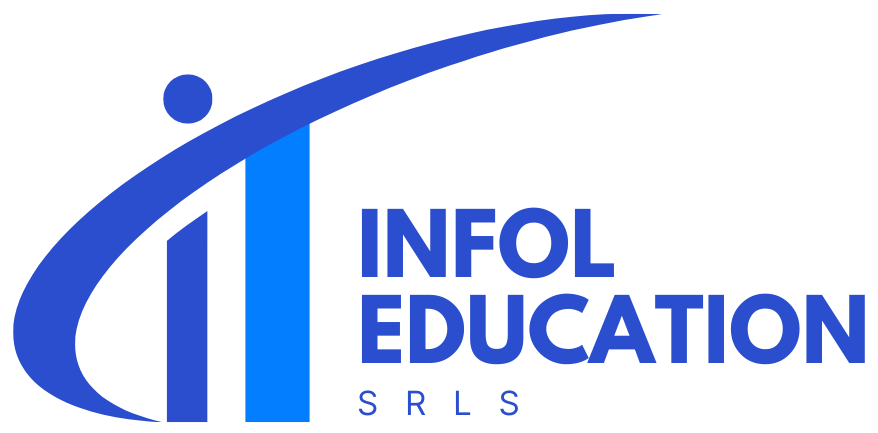DESCRIPTION
Empowering Educators for the Digital Age
This intensive 5-day Erasmus+ training course is designed to equip teachers with the knowledge and practical skills needed to effectively integrate Information and Communication Technology (ICT) into their teaching practices. By exploring a wide range of digital tools and platforms, participants will gain the confidence to create engaging, interactive, and personalized learning experiences for their students.
Course Objectives:
- Understanding the potential of ICT in education: Explore the various ways in which digital tools can enhance teaching and learning, from fostering collaboration and communication to promoting critical thinking and creativity.
- Discovering innovative digital tools and platforms: Gain hands-on experience with a diverse selection of educational technologies, including learning management systems, interactive whiteboards, multimedia creation tools, and online assessment platforms.
- Developing effective strategies for integrating ICT into the classroom: Learn how to design and implement technology-rich lessons that align with curriculum objectives and cater to diverse learning styles.
- Creating engaging and interactive learning experiences: Explore innovative approaches to teaching and learning that leverage the power of ICT to motivate and empower students.
- Promoting digital literacy and responsible technology use:
These learning outputs ensure that participants are well-equipped to leverage digital tools in their teaching, creating more engaging, interactive, and effective learning experiences for their students.
Course Content:
The course is tailored for teachers of all levels and subjects, with a focus on practical application and collaborative learning. By the end of the course, teachers will:
- Understand the role and importance of ICT in modern education.
- Gain proficiency in using a variety of digital tools and platforms.
- Learn to create engaging and interactive lesson plans.
- Enhance their digital literacy and competency.
- Develop strategies for fostering collaborative learning environments.
Course Content:Day 1: Introduction to ICT in Education
- Welcome and Course Overview
- Importance of ICT in Education
- Overview of Digital Tools: Google Classroom, Microsoft Teams, Zoom
- Hands-On: Setting Up Digital Classrooms using Google Classroom and Microsoft Teams
Day 2: Interactive Content Creation
- Creating Engaging Presentations: PowerPoint, Prezi, Canva
- Interactive Quizzes and Assessments: Kahoot!, Quizizz, Google Forms
- Hands-On: Designing Interactive Lessons with PowerPoint, Kahoot!, and Google Forms
Day 3: Collaborative Learning Tools
- Online Collaboration Platforms: Padlet, Trello, Slack
- Virtual Whiteboards and Note-taking: Miro, Jamboard, OneNote
- Hands-On: Group Projects using Padlet and Trello
Day 4: Multimedia in Teaching
- Using Videos and Podcasts: YouTube, Edpuzzle, Audacity
- Augmented Reality (AR) and Virtual Reality (VR): Google Expeditions, Merge Cube
- Hands-On: Multimedia Lesson Planning with YouTube and Edpuzzle
Day 5: Advanced Digital Skills and Course Wrap-Up
- Advanced Digital Tools and Resources: Learning Management Systems (LMS), digital storytelling tools like Storybird
- Cybersecurity and Digital Citizenship
- Final Project Presentations and Course Evaluation
- Certificate Distribution and Closing Remarks
Thanks to this course the participants will:
The educational programme will be re-organised accordingly to the professional needs of our partners. All courses proposed will pass through an accurate assesment of needs, goals and learning outputs. This process will be enhanced before every partnership request as the daily schedule.
20/24/28/40 hours
Course location: Infol – Innovation Training Orientation and Employment
Site: Rome, Athens
Number of days of training: 5/6/7/10
Lesson time: 4 hours
Language of instruction: English , French, Turkish, Italian, Spanish,Bulgarian, Romanian.
Participation fee:send mail to [email protected]
Methodology
The course will combine theory input and discussion with analysis of practical incidents with the purpose of finding out different possible solutions. The methodology used is mainly content-based language instruction (communication through specific content).Text discussion, oral presentation and discussion, role-playing, self- and meta-reflection, debating and group interaction will be the strategies more frequently used.
- Active methodologies
- Role playing
- Simulations
- New technologies
- Visits/workshops in educational institutions as schools, universities, educational centers, and companies
Certificates
- Europass Mobility
- Certificate of Attendance
Upcoming sessions
Location: Roma
- September 2024: Week 2 (September 9 – 13)
- October 2024: Week 2 (October 7 – 11)
- December 2024: Week 3 (December 16 – 20)
- January 2025: Week 3 (January 13 – 17)
- February 2025: Week 3 (February 17 – 21)
- March 2025: Week 4 (March 24 – 28)
- April 2025: Week 4 (April 21 – 25)
- June 2025: Week 1 (June 2 – 6)
- July 2025: Week 1 (June 30 – July 4)
- September 2025: Week 1 (September 1 – 5)
- November 2025: Week 1 (November 3 – 7)
- December 2025: Week 2 (December 8 – 12)





